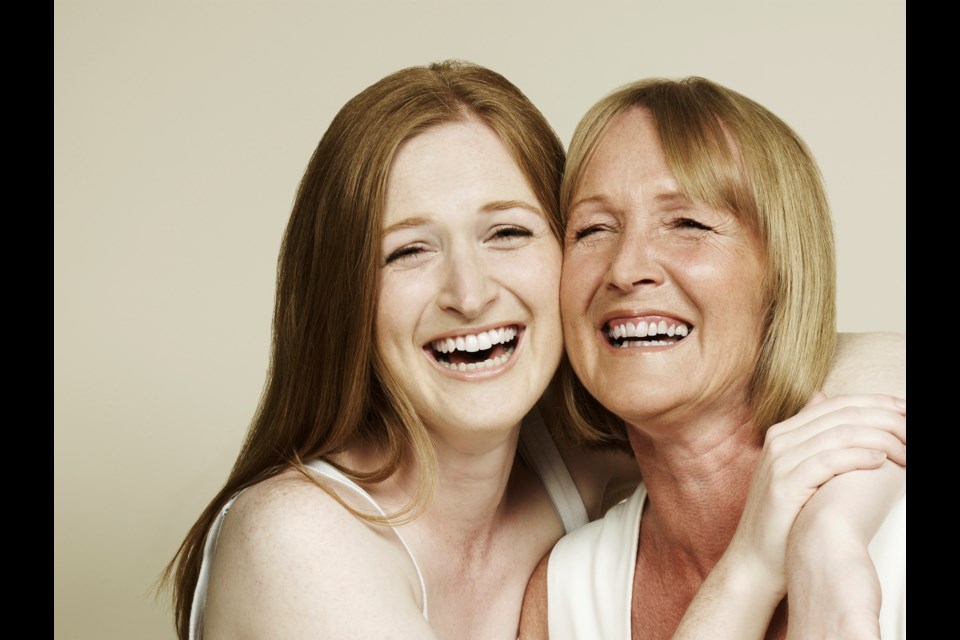Dear Ellie: My adult daughter has commuted two hours each way for work for many years. She complains, and I suggest to her to find a job locally or a shorter commute. I sent her an amazing job advertisement with more money, less commute, job advancement, etc. She said that she didn’t want my help.
However, she asked her siblings for help with looking for a new job but didn’t follow through on the resume and interview. I don’t understand.
She was always an A student but I see her struggling and it’s so hard. She deserves to earn more money, commute less, have job advancement and opportunities.
My partner always says to me, “Stop. Leave her alone.” He’s always minimizing my feelings. I see that my daughter is exhausted physically, mentally and emotionally. How can I help?
Concerned Mom
Your worries about your daughter’s well-being are natural. But your persistence at offering her advice she won’t follow is counter-productive, even divisive.
She’s repeatedly been clear: She does not want your help.
This is a conflict embedded in your relationship. That doesn’t mean you’ve done everything wrong. Rather, it means there’ve been past issues on which you two have never agreed nor tried to resolve together.
You can change this dynamic by appreciating your daughter as she is — independent, and steadfast at the work she does, despite inconveniences and lack of advancement.
Why does she make those choices? That’s her private business, for which she’s unwilling to answer.
Your role with this adult daughter is to back off on all criticism, and be warm and receptive when you see her.
Your partner put it simply — “Stop” all critical judgement.
If you feel a need for personal help on this, talk to a social work counsellor or other therapist, on your own. Your daughter is unlikely to agree to attend with you.
Reader’s commentary regarding the wife wondering whether her nurturing, tidying and low-passion husband is gay (Dec. 8):
“The husband described as an only-child who does all the housework, is and was me.
“Through my personal experience and also attending ACA (Adult Children of Alcoholics/Dysfunctional Families meetings — a 12-step, 12-tradition program of people who grew up in dysfunctional homes) meetings I learned that the reason I was driven to do it all, was because of my childhood. I did it to be liked and loved by my parents … to get approval and attention.
“I acted this way for decades in friendships, work and partners. My first marriage ended after 10 years when I was called a control freak.
“In another relationship, I’ve discovered my defects and took ownership and apologized for my part in the marriage.
“My current 29-year relationship is rock solid as we both attend ACA meetings. We learned how to talk to each other by sharing openly and honestly in those meetings. “I- statements” are the important part of living honestly. I now say what I mean, mean what I say and don’t say it meanly.
“The letter-writer’s husband isn’t broken, but he’s living the normal that he knows.”
Further resources: Everyone should read Lindsay C. Gibson’s books on recovering from emotionally immature parents, Adult Children of Emotionally Immature Parents: How to Heal from Distant, Rejecting, Or Self-Involved Parents.
Reader: “It’s essential reading if your parents were/are narcissistic or downright malignant. The books are also elegantly written, simple, lean, and concise.”
Feedback regarding toxic mothers (Dec. 7):
Reader: “Every day of my childhood my mother told us how much she disliked children and wished we’d never been born.
“I harboured a lot of anger for years. Finally, I grew up, started telling myself that the future was what I choose to make it. She had no control over me anymore.
“Several years later I forgave her because I realized and said, “I have no understanding of your early life and how you became who you are.”
“I wanted my children. I had the freedom to choose. My mother did not. She was saddled with eight children when she wanted none. She never became kind but I learned to be kind to her.
“Carrying all those resentments was like a cancer that would destroy me if I didn’t let go.
“When she died, I felt no guilt nor grief. I’d been dutiful to the end.”
Ellie’s tip of the day
Many parent/adult child relationships are strained due to harsh beginnings. But the potential for change may be hiding in plain sight: Adult self-acceptance.
Send relationship questions to [email protected].


